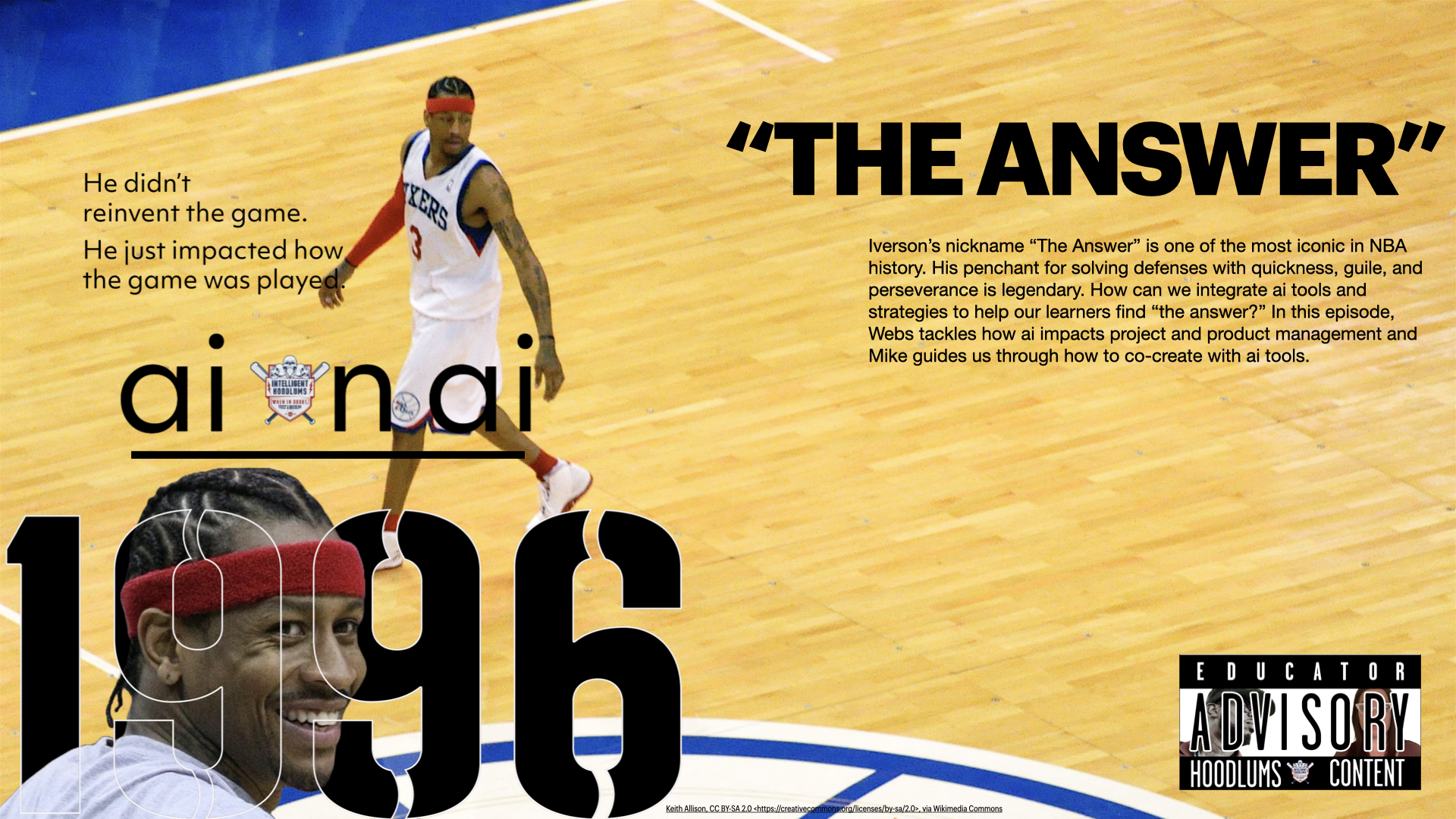Imagine a world where the very tools meant to make our lives easier also challenge our understanding of work and education. The rise of artificial intelligence (AI) is not just a trend; it's a profound shift, promising to remake how we interact with technology in our daily lives. The voices in a recent engaging discussion noted that as we become more integrated with AI, the relationship will evolve into a symbiotic existence, much like how our ancestors relied on the wheel or the printing press. But how ready are we for this change? In this episode of AI on AI, we use Ethan Mollick's first principle for co-intelligence to discuss how educators can use ai in their classrooms.
The AI Revolution: A Necessary Partnership 🌍
Employers, educators, and students alike are being urged to embrace AI not as a replacement for human effort, but as a trusted partner. Mollick's first principle is to always invite ai to the table. Tools like ChatGPT and other AI applications are already interwoven into platforms we use daily, from search engines like Google to digital assistants in our homes. Ignoring AI would be akin to ignoring the steam engine during the Industrial Revolution. This transition from traditional jobs to tech-heavy roles is inevitable, and adapting is crucial for survival.
The statistics tell a compelling story. A study revealed that by 2025, AI could contribute an estimated $15.7 trillion to the global economy. That's a staggering amount that signifies just how essential AI will be. Equipping ourselves and future generations with AI knowledge is not just beneficial but essential for thriving in an increasingly complex landscape.
Education in the AI Era: Evolving Strategies 🎓
The educational system stands at a critical crossroads. With AI tools now able to assist in grading and personalized learning, the role of teachers is shifting. They are no longer just information providers; they are becoming guides in the journey of knowledge acquisition, helping students navigate through the endless ocean of data available online.While AI offers enormous potential, it comes with concerns over privacy and data management.
Incorporating AI into the classroom does not mean relinquishing control; rather, it enhances a teacher's ability to reach each student. A pragmatic approach is to foster a mindset where students learn to recognize the strengths and limitations of AI, ensuring they become adept users rather than passive consumers.
Navigating Privacy Concerns: A Dual Challenge 🔒
With the power of AI comes the responsibility of safeguarding personal data. Our conversation raised significant alarm regarding how much information is being shared and used by AI systems. It underscored the importance of teaching not only how to use these tools but also how to protect sensitive information. As technology evolves, so too must our strategies for data management and privacy protections.
This brings us to a crucial point—being educated about AI means being aware of its implications. Merely adopting AI tools without understanding their workings could expose users and institutions to unnecessary risks.
Embracing Possibilities: The Co-Pilot Concept ✈️
Picture AI as a co-pilot: it helps guide decisions without taking control of the flight. By inviting AI into our creative processes—whether that means generating ideas or enhancing productivity—we can utilize its capabilities as a support system. Indeed, the charm of AI lies in its ability to carry out the tedious, freeing humans to focus on innovation and emotional engagement.
The Road Ahead: Be Curious and Experimentative 🚀
To truly harness the benefits of AI, we must embrace curiosity and flexibility. Encourage experimentation—diving into AI technologies, learning by doing, and adjusting strategies based on what works. This attitude will prepare the upcoming generations not just to survive in an AI-driven world, but to flourish. Having the confidence to meld creativity with technology could lead to future breakthroughs in areas we can't yet fully imagine.
In this shifting landscape, our willingness to learn, adapt, and innovate will determine success. As we stand on the brink of an AI-driven future, the questions we are beginning to ponder will shape the answers we hold valuable for years to come. The rise of AI is not an end, but merely a catalyst for an exciting new chapter in human progress.



What do you think?
It is nice to know your opinion. Leave a comment.